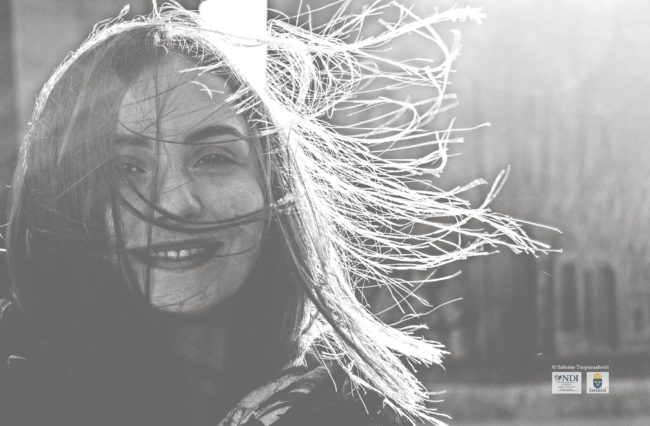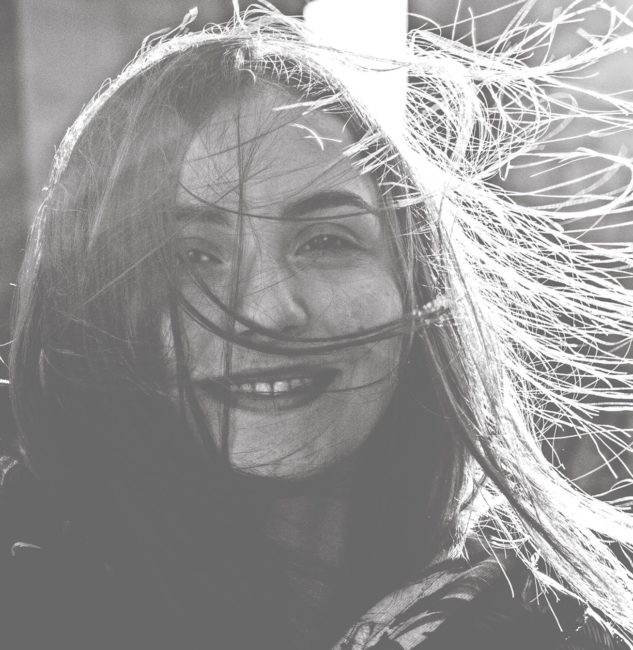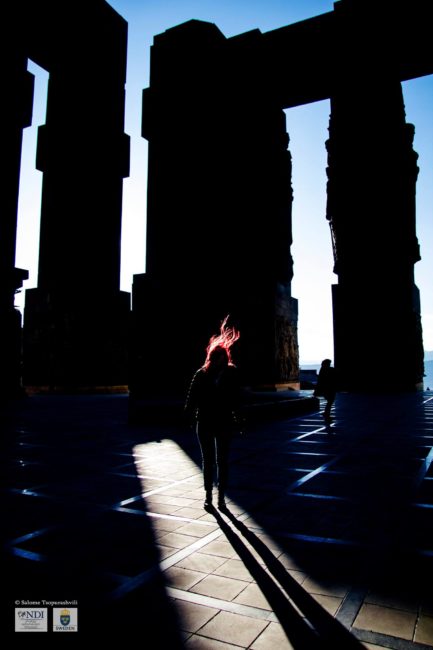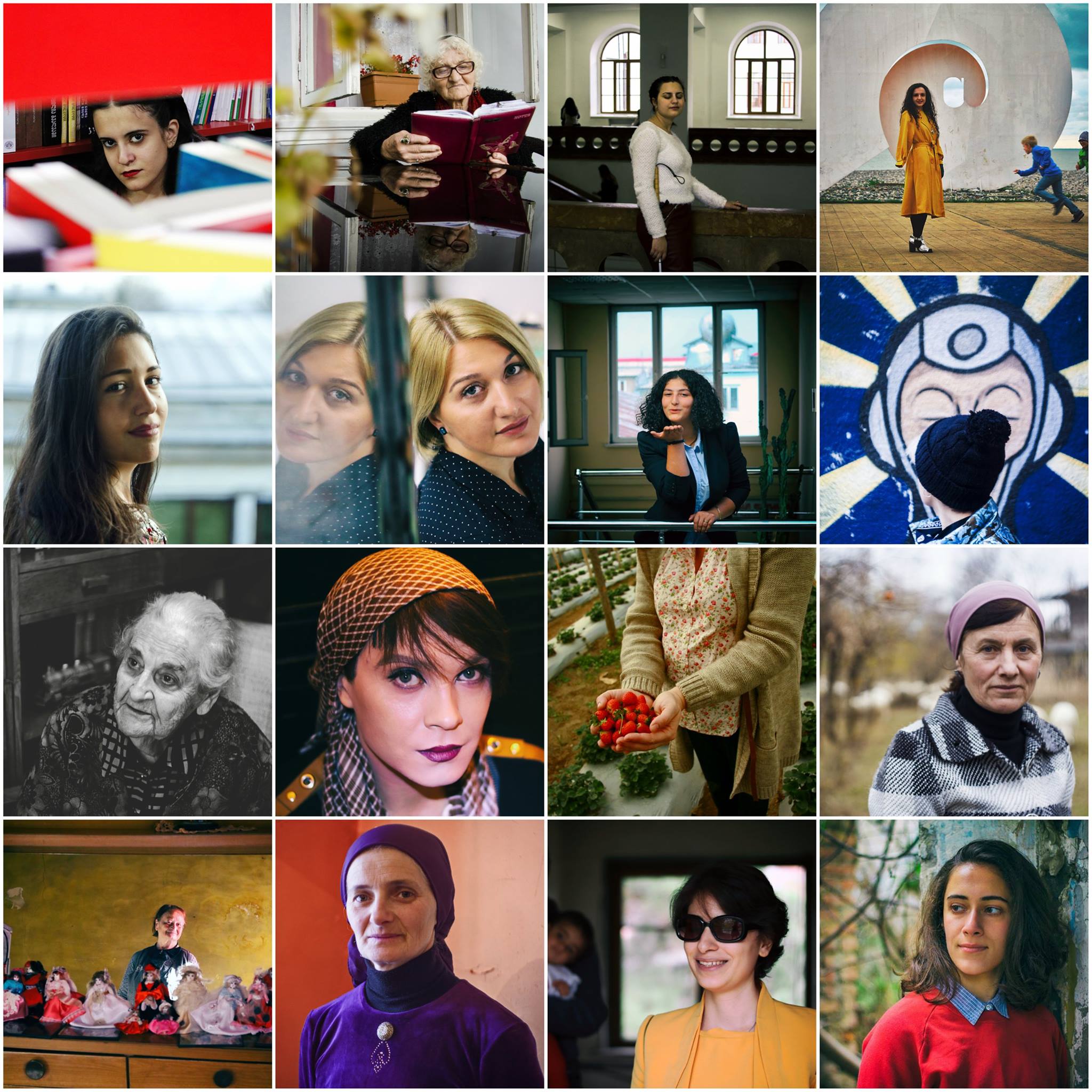
 Women in Georgia very often lack a voice of their own. Their opinions, feelings, dreams, aspirations, and achievements can be conveyed by others, often the men around them. The Women in Georgia project gives a voice to these women, allowing them to tell their own stories — in their own words. The project collected 150 distinct stories from women throughout the country. OC Media brings you a selection of these stories, translated into English and Russian. Below, in her own words, Gvantsa Apkhaidze.
Women in Georgia very often lack a voice of their own. Their opinions, feelings, dreams, aspirations, and achievements can be conveyed by others, often the men around them. The Women in Georgia project gives a voice to these women, allowing them to tell their own stories — in their own words. The project collected 150 distinct stories from women throughout the country. OC Media brings you a selection of these stories, translated into English and Russian. Below, in her own words, Gvantsa Apkhaidze.
‘I was 20 when I went to see the doctor, because I thought I had thyroid problems; instead it turned out to be the final stage of lymphoma…’
‘The term “lymphoma” sounded so harmless to me that I did not think it would kill me. The first thing I did was to conduct a search on Google. I read that it was a tumor, but I found out that in the 21st century, 90% of people with a tumor, especially those who have lymphoma, are cured. I thought I could not be among those 10% who died. It had always been so, I did not think for even a single minute that I would die, even though I felt terrible during chemotherapy. I had blood transfusions twelve times. I had been so afraid of syringes since my childhood that I used to count the number of remaining transfusions and did not sleep the whole night before a chemo session. Who knows how many syringes were added to those twelve, but I accurately crossed off the date on the calendar after each transfusion.’
‘People basically had the same approach, which rather annoyed me: “Is something wrong with her?.. Poor girl! She is so young and she is dying!...” But I knew with certainty that I was not dying. I hope that this attitude will gradually change, because the number of survivors like me has significantly increased.’
‘Keta and I wanted to set up a survivors’ club very much. I met Keta in Turkey when we were both undergoing tests. But unfortunately Keta is no longer alive... Her cancer came back, i.e. she had a recurrence of lymphoma. This also happens sometimes, but her body was unable to tolerate the treatment. I was not told about this for a long time. After some time, when I felt well enough to sit at the computer, I visited Keta’s page, which was full of messages like, “We can’t believe that you are no longer alive” and so on. I cannot explain the level of shock I experienced. I could not believe it myself. I had never accepted that something bad could happen to her. Maybe we were not the closest of friends, but people who are in the same boat can probably understand each other best. Even your own mother may not understand you better than the person who is in the same situation as you. So I found it rather painful to lose every person I met during the period of my sickness. This was not because I thought that something bad would happen to me either. No, for some reason I had never thought about death, despite the fact that even healthy people often think about death. I had not thought that I was going to die because I had cancer... Then I wanted to set up this club to honor Keta’s memory, but I have not managed to do that yet. Had Keta been alive, we would have had a better chance to do that together…’

‘It has been more than two years since I finished my treatment. I underwent tests and they told me that I had been completely cured. Of course, there are some things that I must not do, for example, I have to stay away from the sun and tanning beds for the rest of my life. Otherwise, I feel well and healthy. Sometimes, I even think that this was not my life, and that somebody told me about it. Yes, as if it were not me who had gone through all this suffering and somebody told me some other Gvantsa’s story. After my sickness I take things rather easily. When someone has some problem, I say all the time, “What matters most is that you are not dying, so everything will be all right”. People think that this is just some colorful expression, but I am quite serious about it.’
‘Initially, I felt rather anxious and was sensitive to everything. That’s why I started writing a diary. I wanted people to see that there was a person with this disease who had survived. I had seen many people that did not have anything that serious but still thought they would inevitably die. These prejudices affect a person’s health. For example, when I met Keta, she was rather pessimistic, probably because her disease had relapsed. At the same time, chemotherapy is a challenging process, and it affects a person’s psychology very much. I have found it rather difficult to adapt to people since the chemotherapy. I want to be at home all the time, or I like being in places with few people around. Yes, I still feel the same… Initially I was not supposed to go out because of my weakened immune system, which made me susceptible to viral infections. The second reason was that I did not have hair, i.e. during chemotherapy it is noticeable that a person is ill and I felt uncomfortable when people stared at me. Some people really have an odd attitude and questions, “Is it a communicable disease?!” some people used to ask me, looking at me like they were disgusted, but I tried not to pay any attention to this, and explain my condition if I did not feel lazy. The problems I faced during my treatment were similar to those faced by people with disabilities in Georgia because I was treated exactly like a person with disabilities.’
‘I love life very much. I thought that people were born to make their contribution to the universe. I had not done anything else at the age of 20. Studying was the only thing I did and I always thought that it was not time for me to die. So, I decided that I was not supposed to die until I did something. I was rather confident in myself.’
‘Many people, including some of my friends, did not know that I had cancer. I did not tell them because they looked at me as if I were a dying person, which made me feel rather uncomfortable. At the same time, I was confident that I was not dying. Many people who learned that I was sick after chemotherapy did not believe me. “Why did you not die then?!” they would ask. Yes, they do not know that cancer does not always kill people.’
‘Hair is interesting and symbolic in this respect. I thought about this issue quite frequently because I also made friends with people who were undergoing chemotherapy. All of us used to complain about hair. We all had cancer, we all were going through chemo, felt rather bad and complained that there was a time when we had good hair! We talked about this all the time, looked at each others’ photos. This was because the only change I noticed in me then was my hair, and I thought for some reason that there was some strength in my hair. I looked forward to growing my hair.’
‘Like people who dream in their childhood “when I grow up I will become an astronaut”, I planned, “when I finish chemotherapy, I will start a new life”. This really happened. I became what I had actually always wanted to become — a painter.’
‘When I was sick I used to write and made some sketches for myself. My friends, who knew about my passion for writing, advised me to publish a book as it would help many people etc. One day when I told them that I also had some drawings, one of them brought me canvas, and others paint and brushes as a present… I was afraid of failing, so I painted one picture rather secretly. I liked both painting on the canvas and the picture I painted. I had painted three pictures in three days before my friends came. I have painted for a year and I think I already have 30 paintings. I had never tried to paint before and I thought that I could not. But I had some contact with painters because my father is a painter. He never taught me anything, because his approach was that you should not set boundaries for a child…’
‘As for my plans, I will probably hold an exhibition, but I first want to finish studying law (which I had studied before I fell ill) then work in the field of human rights.’
‘I think that I paint whatever I think, and I do not need to study how to paint, i.e. these paintings are not important to me. As a matter of fact, I started painting for me and continue it for myself, if anyone likes them, I will be very happy.’
‘Why am I talking about this publicly? I think we should be proud rather than ashamed that we have survived. This is not an easy path to travel. This one and a half years of treatment has probably made me old, I mean the way I think. Although I was so young I used to think about so many things. Therefore, even though I find it rather challenging to talk about myself, I decided to do that anyway.’
‘I would like to tell people who are fighting cancer today (or have just learned that they have the disease) and feel demotivated or think that they will not survive, that they will not die! They have to struggle for their life because if you believe you will survive! No matter how bad you feel, you should not lose hope for a second. Even if I had had a 1% chance to survive, I would have thought that I would be one among those 1% of people who would not die. Of course, sometimes I felt like, “I will give up this chemotherapy, I cannot stand it anymore, I cannot…” but after an hour I was free from such negative thoughts.’
‘I wish children never had cancer. I have often thought about what I would do if the same happened to me again. I have presented a kind of ultimatum to the God — If I fall ill again, I will receive treatment and survive, but on condition that some other person will not turn ill.’




 15 May 2017
15 May 2017



